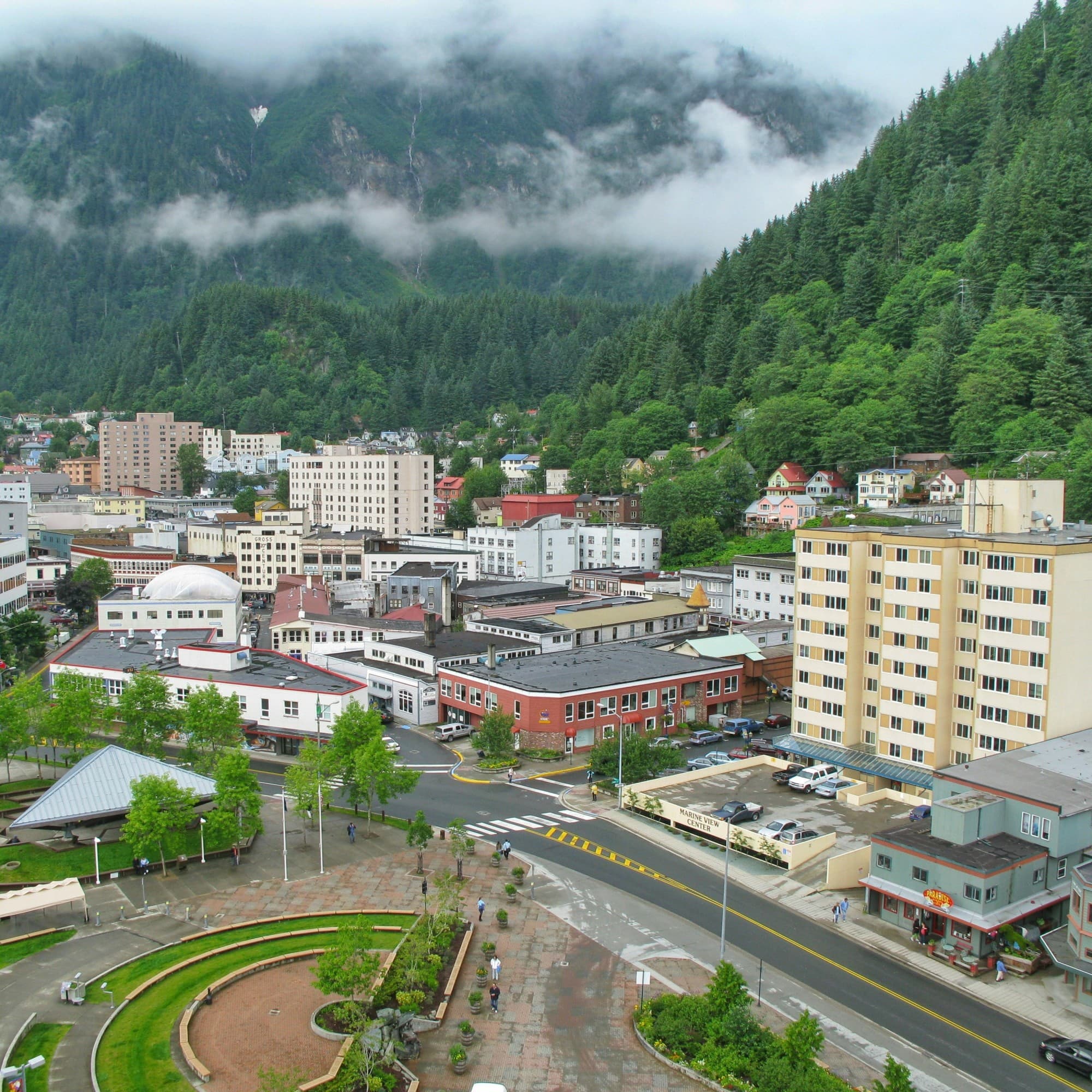
10 Reasons to Run for Office as an Independent in Alaska
Known for its majestic landscapes and unique culture, Alaska stands out not just for its geographical wonders but also for its distinctive political climate. It also has a large percentage of independent voters, the highest of any state, and a history of unconventional politics.
This indicates that it also offers a unique platform for those who are looking to enter the political arena without traditional party affiliations.
Read on as we provide an overview of Alaska’s political history and leanings, discuss some of its most pressing voter concerns, and provide the reasons why you should start an independent political campaign in the Last Frontier in 2024.
Alaska's Political and Voting History
Alaska's political landscape is as diverse as its natural environment. Historically, the state has shown a tendency towards Republican candidates in federal elections. However, Alaska also has a track record of embracing independent and nonpartisan candidates at various levels of government, reflecting its independent-minded electorate.
Alaska ranks first in the nation for its percentage of independent/unaffiliated voters, according to the Independent Voter Project. This distinction underscores the state's openness to candidates outside the traditional two-party system.
In fact, results from recent elections prove that a fairer system incentivizes voter turnout, especially among independents. Alaska has switched to a top-four primary method of selecting candidates, meaning that candidates appear on all ballots with no indication of party affiliation. The top four vote getters proceed to the general election. Adoption of the ranked choice voting (RCV) system empowers residents to vote according to preference rather than party.
These two changes, in addition to wide-spread redistricting, led to a larger percentage of independents being elected to office in 2022 than in any other election year in the state’s history.
Notable Independent Politicians from Alaska
Alaska has a history of independent politicians making significant impacts. Figures like Bill Walker, who served as an independent governor, highlight the state's receptivity to nonpartisan leadership.
In 2022, Shoshana Gurgunstein ran as an independent hopeful for Senator Lisa Murkowski’s seat. Despite only living in Alaska for less than three years, she made the top four in the primary from a field of 17.
Their successes could serve as a model for aspiring independents.
As we approach the 2024 elections, we present the top 10 reasons that Alaska offers a compelling opportunity for independent candidates.
10 Reasons to Launch an Independent Campaign in Alaska
Reason #1: High Percentage of Independent Voters
Alaska leads the nation in its share of independent voters, offering a broad base of support for nonpartisan candidates.
Reason #2: Political Diversity
The state's history of electing both Republican and independent leaders indicates a flexible electorate. Higher percentages of younger voters and women among the voting demographic contribute to greater diversity among the electorate.
Reason #3: Gap in Representation
In 2022, 11% of elections in Alaska were uncontested. During that same election cycle, nearly one-third of incumbents chose not to run for re-election. The 2023 elections in the Northwest Arctic Borough produced a single local election with more than one candidate.
So far, the 2024 election looks to be more of the same.
With such a high number of uncontested elections, there’s a clear opportunity for new voices in the political arena. The June 1 registration deadline gives independents plenty of time to get into the race.
Reason #4: Unique State Issues
Alaska's unique environmental, economic, and social issues provide a platform for independents to address concerns not typically covered by the two major parties.
Reason #5: Community-Focused Politics
Alaskans often value local and community-based approaches to politics, favoring candidates who prioritize local over national issues.
Reason #6: Discontent with Partisanship
Growing frustration with the two-party system nationwide, including in Alaska, creates an opening for independents. Taken with other factors that are unique to Alaska, such as the seven year-long probe into political corruption in the state legislature, wide-spread voter discontent could pave the way for indy politicians at all levels of government within the state.
Reason #7: Opportunity for Grassroots Movements
The state’s geography and demographics are conducive to grassroots campaigning, allowing candidates to build strong, direct relationships with voters.
Reason #8: Innovative Policy Solutions
Independent candidates can bring fresh perspectives and innovative solutions to issues like climate change, which is critically important in Alaska.
Reason #9: Strong State Identity
Alaskans possess a strong sense of state identity and pride, which independent candidates can resonate with by focusing on state-specific values and goals.
Reason #10: National and Global Attention
Running for office in Alaska can attract national and international attention due to the state's strategic importance and unique challenges. It is the only U.S. state that shares borders with two other countries, one friendly and one adversarial. Russia has a Maritime border with Alaska via the Bering Straits. Alaska and Canada share a land border.
Running for Office in Alaska
For those considering a run for office in Alaska, it's essential to understand the specific challenges and opportunities of the state's political landscape. Engaging with local communities, focusing on Alaska-specific issues, and leveraging the high rate of independent voters are key strategies for a successful campaign.
In addition to the presidential candidates and one open seat for the U.S. House of Representatives, there are 62 state executive positions and many local offices that are up for grabs in Alaska. We’ll highlight some of the more notable for your consideration for a possible run in 2024:
State and Local Races in 2024
The state executive races alone provide ample opportunity for the right independent candidate to represent their community. According to the latest data collected by the State Division of Elections, there are 10 State Senate seats on the ballot for 2024 and 40 seats in the State House of Representatives.
Of those, there is no candidate running in seven of the 10 Senatorial districts and 27 seats with no contender willing to fill them in the State House. The lone U.S. House seat has two non-partisan contenders, one certified unaffiliated candidate and one from the No Labels party.
This could indicate a trend toward independent political representation in general for Alaskans.
Once you’ve gauged your capabilities and set your sights on a seat in state or local government, it’s time to seek out advice and support for a successful campaign.
Tips for Independent Candidates in Alaska
Address Alaskan-specific issues. Focus on issues unique to Alaska, such as oil and gas industry regulations, fishing rights, Native Alaskan concerns, and climate change impacts.
Engage with rural communities. Many Alaskan communities are remote and rural. Make an effort to reach out to these areas, understanding their specific needs and concerns.
Capitalize on the high number of independents. With a large independent voter base, emphasize your alignment with the independent values and concerns of Alaskans.
Highlight resource management. Resource management is a critical issue in Alaska. Develop and communicate clear policies on how you plan to manage the state's natural resources sustainably.
Focus on infrastructure development. Given Alaska's vast geography and challenging terrain, infrastructure development, including transportation and internet connectivity, is a significant concern.
Utilize social media and virtual platforms. Given the vastness of the state and the remote nature of many communities, leverage social media and virtual platforms for wider voter outreach.
Important Dates and Deadlines for the 2024 Elections
Independent candidates should have enough time to get all of their necessary filing requirements in line. The deadline to file for office is June 1, 2024, and the primaries are held on August 20, 2024. The general election is on November 5, 2024.
For other information about qualification criteria, forms, and deadlines, contact information for regional election supervisors and other resources are available on the Alaska Division of Elections website.
Free Support for Your 2024 Campaign in Alaska
Alaska's distinctive political environment, characterized by a high percentage of independent voters and a history of unconventional politics, presents a unique opportunity for independent candidates in the 2024 elections.
Whether your sights are set on addressing local issues, tapping into the state’s independent spirit, or filling gaps in representation, running for office in Alaska as an independent can be a rewarding and impactful endeavor.
If you're inspired to make a difference in Alaska's political landscape, the team at GoodParty.org is here to support independent candidates like you. Check out our collection of free campaign tools and resources here.
Photo by Robert Linder on Unsplash
